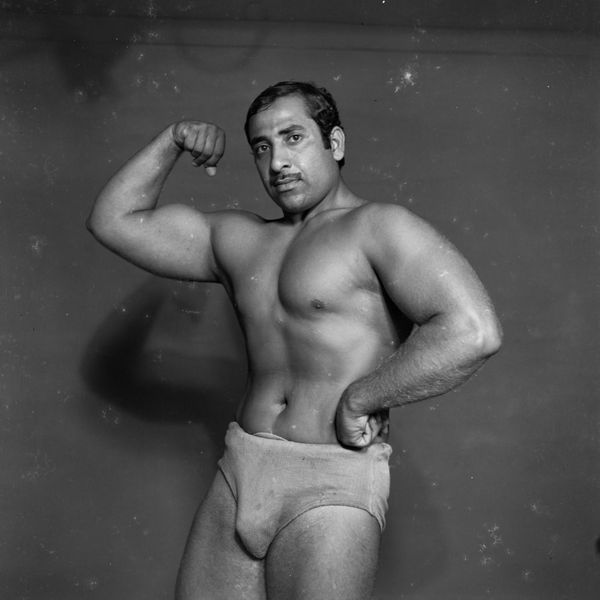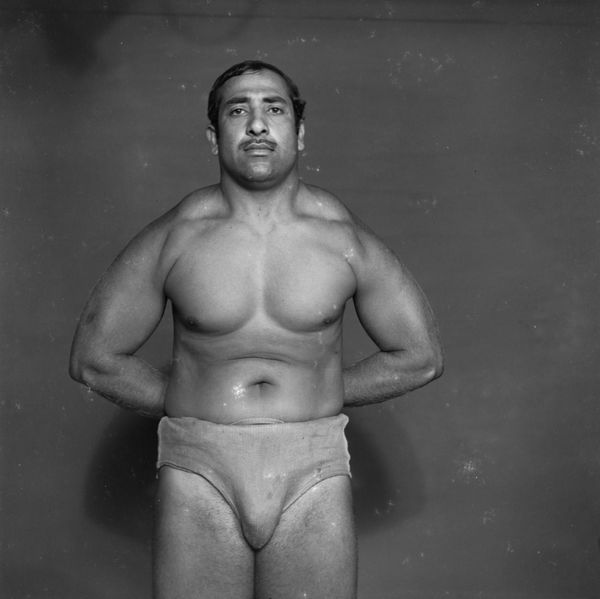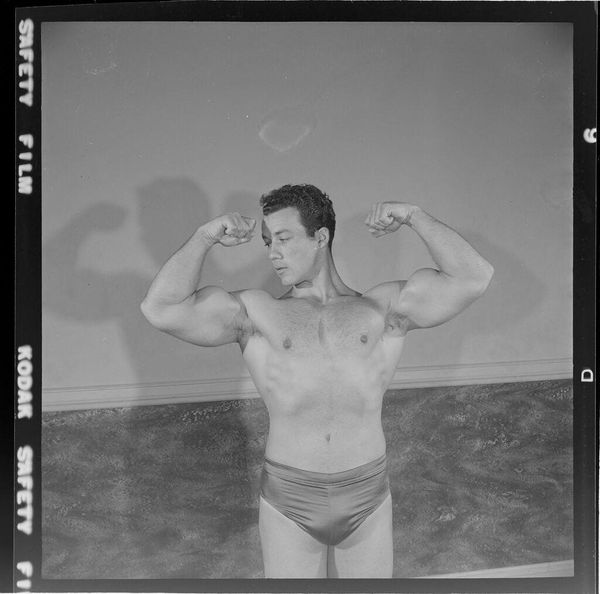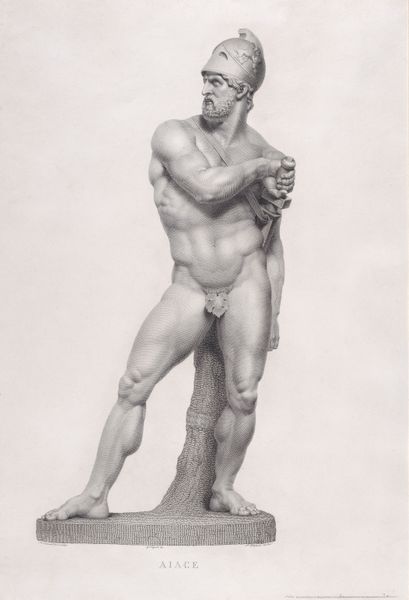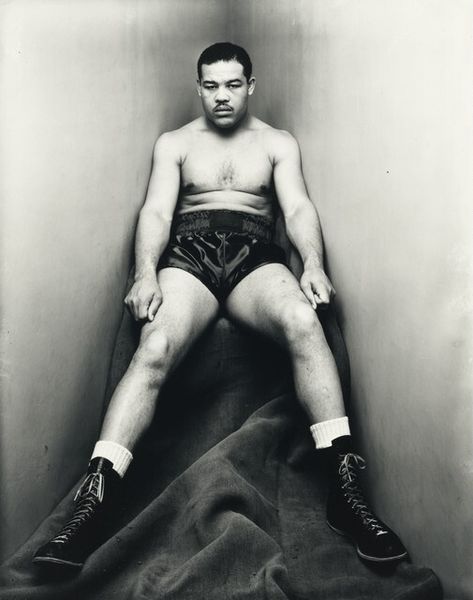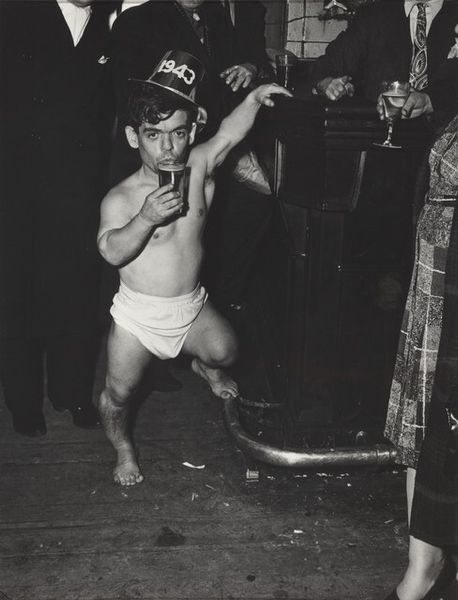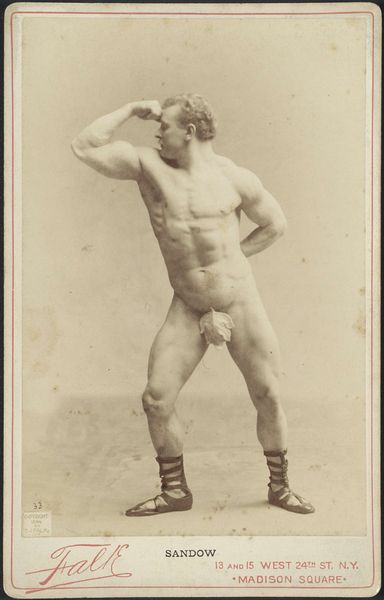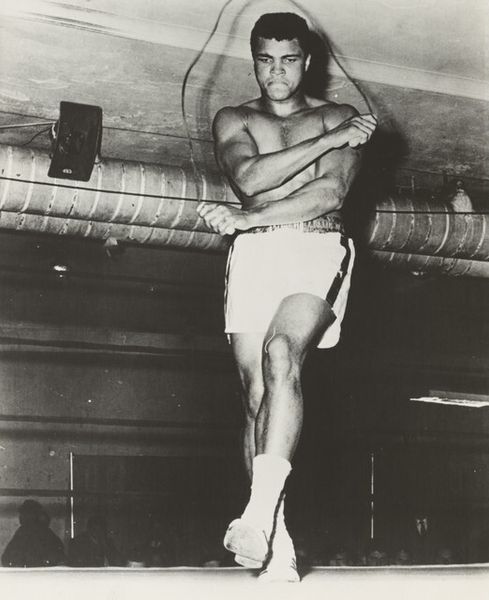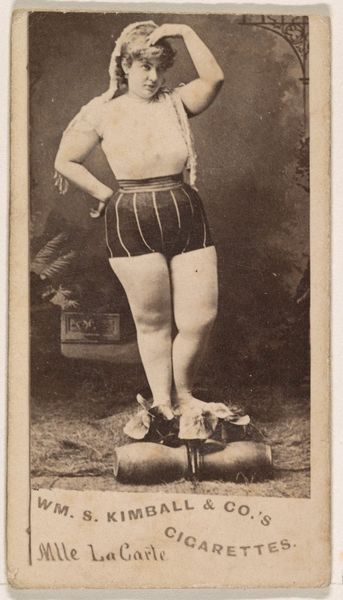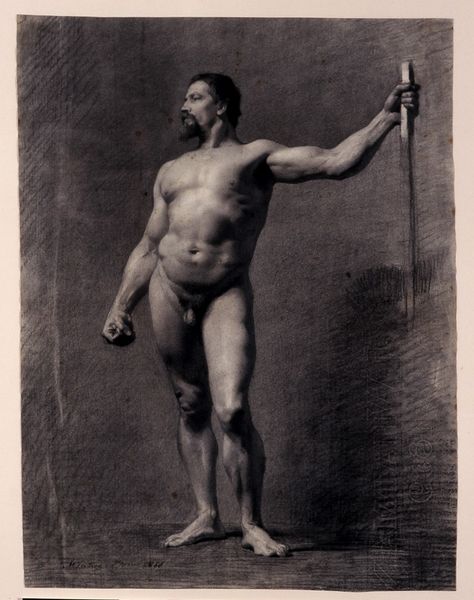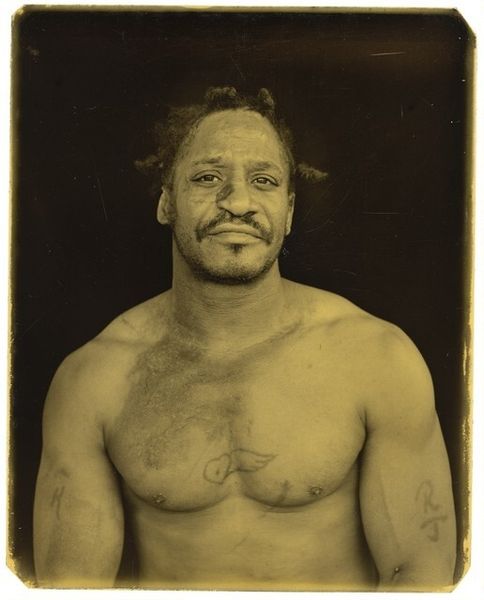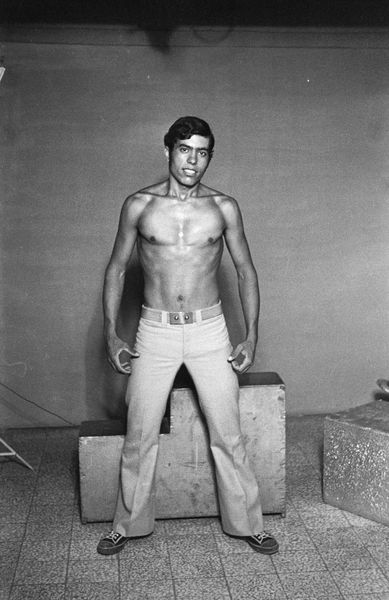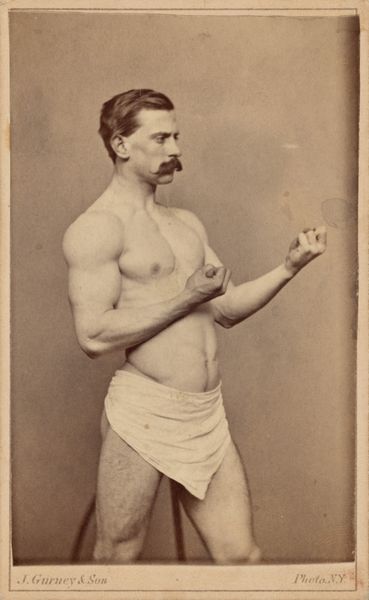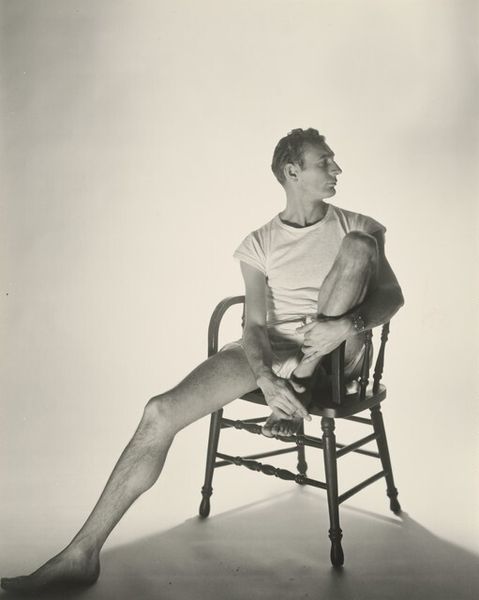
Dimensions: image: 291 x 290 mm
Copyright: © Akram Zaatari, courtesy Hashem el Madani and Arab Image Foundation, Beirut | CC-BY-NC-ND 4.0 DEED, Photo: Tate
Curator: This is Akram Zaatari's photograph of "Reesh," taken in the late 1960s at Studio Shehrazade in Saida, Lebanon. The image, nearly square at 291 by 290 millimeters, presents a posed portrait of a muscular man. Editor: The stark monochrome and shallow depth of field give it a decidedly raw, almost confrontational quality. It's less about idealized beauty, and more about presence. Curator: Indeed. These studio portraits, taken by Hashem el Madani, were often commissioned by the subjects themselves, signaling aspirations of modernity and strength within their community. Think of it as a visual assertion of self. Editor: The clenched fists—mirrored at the center—create a fascinating tension. The figure’s self-conscious pose speaks to a desire for respect, a wish to be seen as powerful in a rapidly changing world. Curator: These images tap into a desire for self-representation, almost a visual embodiment of resilience, within a specific cultural context. Editor: Ultimately, it's the interplay of light and shadow, the strong contrast, that elevates what could be a simple portrait into a potent symbol. Curator: It’s a fascinating lens through which to view both individual identity and collective memory. Editor: Absolutely, and a remarkable example of how photography can capture the nuances of aspiration.
Comments
tate 10 months ago
⋮
http://www.tate.org.uk/art/artworks/zaatari-reesh-studio-shehrazade-saida-lebanon-late-1960s-hashem-el-madani-p79466
Join the conversation
Join millions of artists and users on Artera today and experience the ultimate creative platform.
tate 10 months ago
⋮
“Men in general used to like showing their muscles. This man’s nephew, is the now-famous Lebanese singer Fadel Shaker.” Gallery label, June 2011
